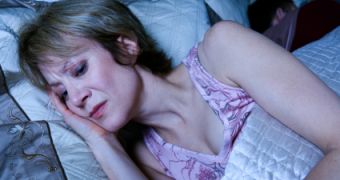Postmenopausal women sleeping less than six hours or more than nine hours every night have increased chances of suffering an ischemic stroke, shows a study carried out by Jiu-Chiuan Chen, assistant professor at the University of North Carolina School of Public Health. Postmenopause is a stage a woman has to go through once she reaches menopause, when her reproductive system becomes inactive.
Data provided by the Women's Health Initiative Observational study, regarding 93,175 postmenopausal women with ages between 50 and 79, was used by Chen and compared against various external factors like lifestyle, cardiovascular diseases, sleepiness symptoms, snoring and depression, in order to examine the relationship between the occurrence of ischemic stroke and the self-reported sleep durations.
The results of the study showed that about 8.3 percent of the participants in the study sleep less than five hours per night, while another 4.6 percent sleep more than nine hours. The WHIO study also reported that over a period of 7.5 years there have been about 1,166 cases of ischemic strokes among the participants.
"After accounting for all common clinical conditions predictive of stroke, we found this increase was statistically significant: sleeping nine hours or more is strongly associated with increased risk of ischemic stroke," said Chen.
Chen's team found that women sleeping more than nine hours every night have a 70 percent higher chance of having an ischemic stroke than women sleeping only seven hours every night, while those sleeping less than six hours every night were found to have a 14 percent increase in the risk of having a stroke.
"Our data do not imply that if women with long sleep cut their sleep hours they would be at a lower risk. At this point, we still cannot determine that long sleep causes ischemic stroke. The observed increase in stroke risk in long sleepers may be due to some unmeasured factors, such as undiagnosed sleep disorders, although we did attempt to account for that in our analysis," he said, while pointing out that further research must be conducted in order to understand the exact mechanism causing the results of his study.

 14 DAY TRIAL //
14 DAY TRIAL //